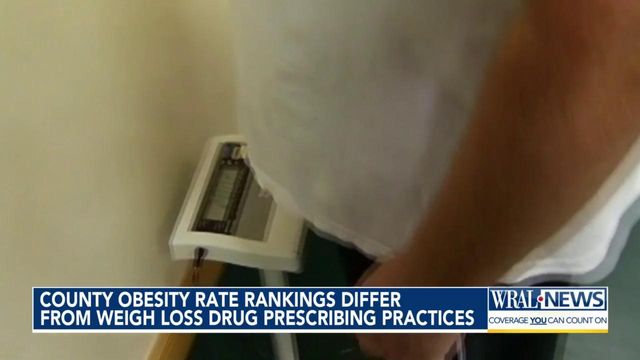Weight loss drug prescribing practices don't match up with the obesity rates, data shows
Thousands of people in North Carolina are taking weight loss drugs, and, until recently, many were state employees covered by insurance. The state treasurer says there’s been an explosion in prescriptions, and data shows there are now more than 24,000 state employees with prescriptions for these drugs which is a 773% increase in less than three years.
"I've never seen one expense item jump up on the table as quickly as these weight loss drugs have," said Dale Folwell, North Carolina's treasurer.
GLP-1 drugs, prescribed for weight loss, were costing the state upwards of $14 million a month to cover. The decision to end coverage for weight loss will impact 24,000 state employees, according to data. While it may seem like a lot, the impact is only for about 4.4% of all state employees.
About 2,900 state employees living in Wake County are on these prescriptions for weight loss, but Wake County is also home to the greatest numbers of state employees.
Wake County also has a lower-than-average obesity rate.
A data analysis by WRAL shows that weight loss drug prescribing practices don't match up with the obesity rates. In other words, counties most impacted by obesity aren't the ones where people are seeking out prescriptions for GLP-1 drugs most.
Bladen County has the highest prescription rate. Over 10 percent of those covered by the state are on a GLP-1s for weight loss, and while its obesity rate sits at 40%, it isn't the highest. Robeson, where 44% of residents are obese according to health data, is in the top five for prescriptions.
In fact, Martin County’s obesity rate sits at 34%, identical to the state’s, but over 8% of people on state insurance are on these drugs, which is much different than the state's average.
While medical professionals have said the drug’s positive impacts on weight loss could result in lower health costs in the future since obesity is linked to other issues like heart disease and diabetes, Folwell says the math doesn’t add up.
"This whole cost-benefit analysis is something that we continue to look at," said Folwell. "Those payoffs are long term and when people go and get this drug prescribed to them, we have to pay that immediately. That's why our state health plan financially is under siege."











